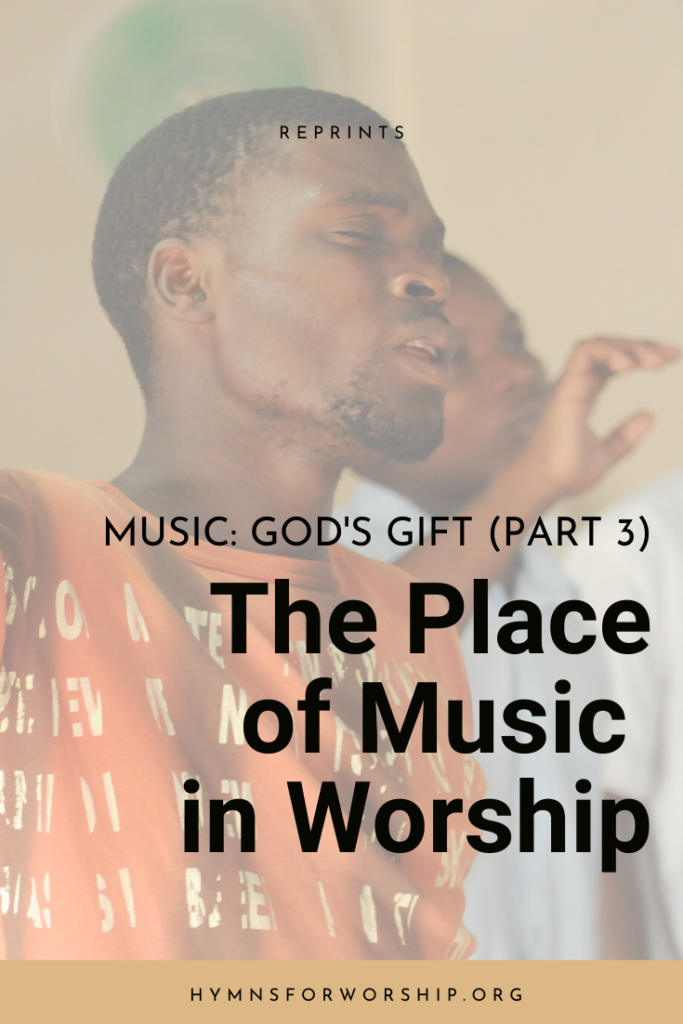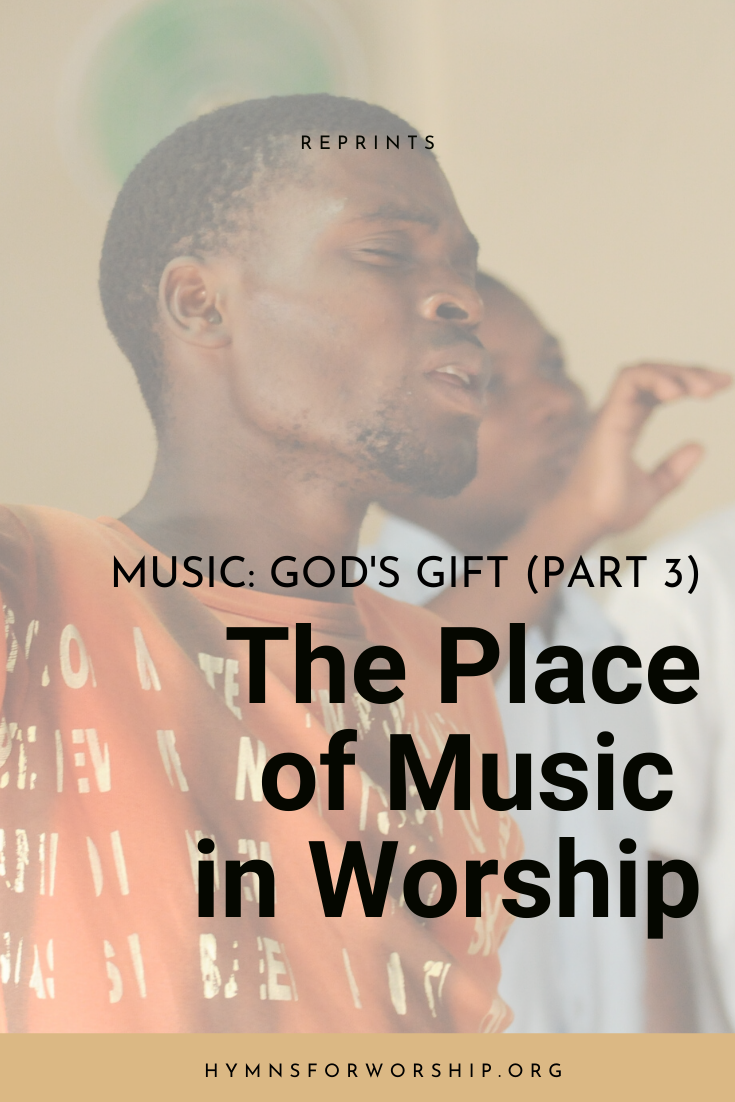The place of music in worship is a question of direct concern to each of us. Is music merely a time-filler, something to drown the conversation while the congregation assembles, or is it a part of worship itself? To some people, music conveys even more of a religious meaning than the spoken word. We would not think of entering a service during prayer because we consider it a part of worship, but we have no hesitancy about entering during the singing of hymns.

When music is considered merely an adjunct to embellish the service rather than an integral part of the service, the result is a lack of unity and coherence in worship. When the music is chosen with no reference to the main theme of worship, it is a sure indication that music is merely subsidiary and not a component part.
How Shall We Choose?
How shall we know the proper kind of religious music to use for various occasions? What are the criteria by which we may judge? This question was once discussed by two evangelists. The one claimed that only the latest type of gospel song would keep the interest of the audience. He felt there was no other way in which to get the people into the right spirit. The others pointed out that millions of martyrs went to their death long before the day of the gospel song, inspired to the utmost devotion under an entirely different type of music.
So in a congregation of any size, there is bound to be wide differences in musical taste and appreciation. The sensibilities of the musically educated may be deeply pained by the cheap and trivial in religious music. Likewise the musically unintelligent may be uninterested and even bored by highly intellectual music. To them, it does not convey any meaning because they may not know what to listen for. I have been quite amazed to note how a person’s taste in music may change over the course of a number of years through education in music. It is my conviction that, as a people, our musical taste will grow as we subject ourselves to that which is good in music.
When the music is chosen with no reference to the main theme of worship, it is a sure indication that music is merely subsidiary and not a component part.Click To TweetThere is truth in music as in art, and we should constantly seek to advance in the direction of that which we hope to enjoy in the future life. Sometimes, however, we hear our hymns sung or played in such exaggerated rhythm that we find it difficult to keep our feet from moving.
The history of our world opened with an oratorio when at creation the morning stars sang together. It will close with the song of the redeemed on the sea of glass, and it certainly will not be in waltz or swing rhythm. I am truly concerned whenever I hear any of our people humming or singing some of the latest pop tunes. It seems hard to believe that they are preparing to sing the song of Moses and the Lamb a short time hence.
John, the Revelator, inspired in vision by the heavenly music describes the perfect harmony of that grand chorus as “the voice of many waters.”
“And I heard the voice of harpers harping with their harps, and they sang, as it were, a new song before the throne…and no man could learn that song but…[they] which were redeemed.” Revelation 14:2,3.
We could have no greater honor than to have a part in that most exalted and sublime music festival. Let us prepare now to learn the harmonies of heaven.
The following article by Wilhelmina Dunbar is taken from the June 15, 1969 issue of Trans-Africa Division Outlook.The original can be found at the Adventist Digital Library website.
Like this article? Share it!

